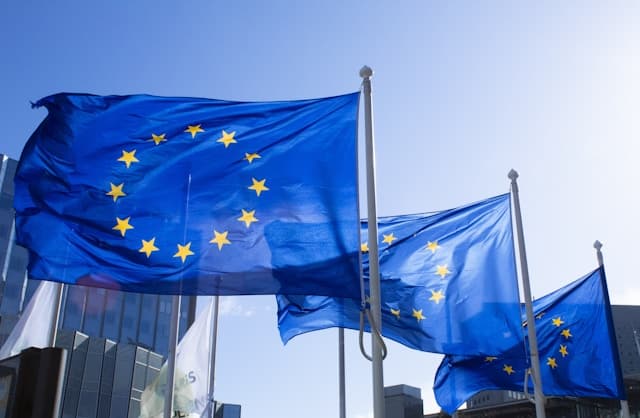Global News
EU Parliament's Briefing on Syrian Sanctions and the Potential for Relief
DATE
18 Feb, 2025
Read time
5
On 11 February 2025, the European Parliament published a briefing outlining the potential for relief from sanctions imposed on Syria by the European Union (EU), the United States, and the United Nations. Recently, there has been growing international pressure to lift sanctions on Syria following the fall of the Bashar Al-Assad regime. The new government, headed by Ahmad Al-Sharaa and led by Hayat Tahrir al-Sham (HTS), is trying to navigate methods of relief from the sanctions to address Syria's ongoing economic and humanitarian crisis.
Steps Taken by the EU Foreign Affairs Council for Sanctions Relief
According to the briefing, on 27 January 2025, the EU Foreign Affairs Council agreed to systematically ease sanctions on Syria in a gradual approach. The early stage of relief targets sectors such as energy, transport, and finance. The possibility of relief is likely to further expand to trade, investment, and banking. The briefing also suggested that relief is dependent on the current regime's commitment to political inclusivity, particularly in ensuring minority rights, human rights, and gender equality in Syria. The briefing further argued that a reinstatement mechanism is in place, permitting sanctions to be reimposed and relief canceled if Ahmad Al-Sharaa and his government fail to meet the above-mentioned conditions.
The remaining restrictions include the arms embargo, bans on military-use technology, and sanctions on chemicals to prevent their weaponization. Furthermore, personal sanctions on individuals and entities associated with the Assad regime will remain in force. According to the briefing, the EU is also closely monitoring HTS’s terrorist status, stating that any delisting decision will align with the United Nations' position while also considering security against terrorist financing.
US Sanctions Relief
The EU Parliament’s briefing stated that the US has also introduced limited sanctions relief but continues to enforce the most severe restrictions.
On 6 January 2025, the Biden administration issued Syria General License (GL) 24, a six-month waiver that eases restrictions on essential services such as electricity, energy, water, and sanitation, while allowing transactions related to petroleum, natural gas, and electricity within Syria. Moreover, payments from abroad can now be processed through the Central Bank of Syria. Nevertheless, HTS, the Assad government, and related entities remain excluded from these exemptions. Syria’s state-controlled assets in the US remain frozen as well. On 17 January 2025, the Foreign Assistance Waiver was introduced, permitting countries like Jordan, Turkey, the Gulf States, and Ukraine to support Syria’s reconstruction without facing US penalties. Despite the aforementioned US waivers, sanctions remain in force, including the Caesar Act (2019). The Caesar Act (2019) prohibits foreign entities from contributing to major economic activities in Syria and imposes penalties on companies and governments aiding Syria’s future reconstruction.
Syria also remains designated as a State Sponsor of Terrorism (SST) by the US, which blocks it from receiving US aid. Additionally, HTS remains on the US terrorist list, with sanctions still imposed on its leader and current President, Ahmed al-Sharaa.
The UN, Russia, and Potential Scenarios
According to the EU Parliament’s briefing, the United Nations Security Council (UNSC) is having ongoing debates concerning HTS’s designation as a terrorist organization. Several UN member states argue for its removal from the sanctions list, claiming that HTS has cut ties with Al-Qaeda and is now focused on governance rather than jihad, and that delisting could facilitate humanitarian aid and economic recovery. However, Russia strongly opposes any delisting, citing HTS’s extremist roots.
The briefing suggests several outcomes. The UNSC could grant partial relief, such as lifting travel bans on HTS officials to facilitate diplomatic engagement. A full delisting of sanctions is likely to occur if major players like the US, Russia, and China reach an agreement.
On the other hand, if an agreement is not reached, no action is likely to be taken, keeping HTS on the sanctions list and restraining Syria’s reintegration into the global economic and political sphere.
Epilogue
The EU Parliament’s briefing details that the EU is taking a cautious approach, easing sanctions gradually and conditionally. The United States, on the other hand, has issued selective waivers but continues to sustain strict financial restrictions. Meanwhile, the UNSC remains divided and its position unclear, with Russia strongly opposing any effort to remove HTS and its leaders from the terrorist list.
Related articles




